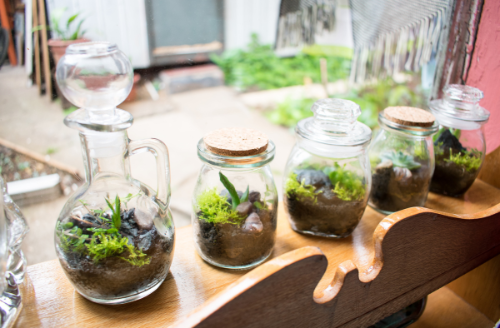
Growing herbs in mason jars can be a delightful and practical way to have fresh ingredients at your fingertips. Here are five herbs that generally do well in mason jar plantings:
When planting herbs in mason jars, it’s essential to choose a container with proper drainage to prevent waterlogging. Additionally, use a quality potting mix and pay attention to each herb’s specific sunlight and water requirements. Regularly harvesting and pruning herbs will help promote healthy growth.
It’s important to note that while these herbs offer potential health benefits, they should be consumed as part of a balanced diet, and individual responses may vary. Always consult with a healthcare professional, especially if you have specific health concerns or conditions. Additionally, the concentration of beneficial compounds can vary based on factors like growing conditions and plant maturity.
Choosing the Right Soil for Your Mason Jar Herb Garden:
One of the key factors in ensuring the success of your mason jar herb garden is selecting the right soil. Herbs, like any other plants, have specific soil preferences for optimal growth. Here are the types of soil you can consider for your mason jar herb planters:
Tips for Soil Preparation:
By choosing the right soil for your mason jar herb garden, you create an environment where your herbs can thrive and provide you with an abundant harvest for culinary delights.
Mason Jar Herb Garden:

Materials Needed:
Instructions:

This repurposed mason jar craft not only adds a charming touch to your home decor but also provides fresh herbs for cooking. It’s a functional and aesthetically pleasing DIY project that combines sustainability with practicality.
Expand your knowledge on more ways to use garden herbs here https://alison.com/course/how-to-use-garden-herbs?utm_source=alison_user&utm_medium=affiliates&utm_campaign=35421710
Subscribe to get the latest posts sent to your email.